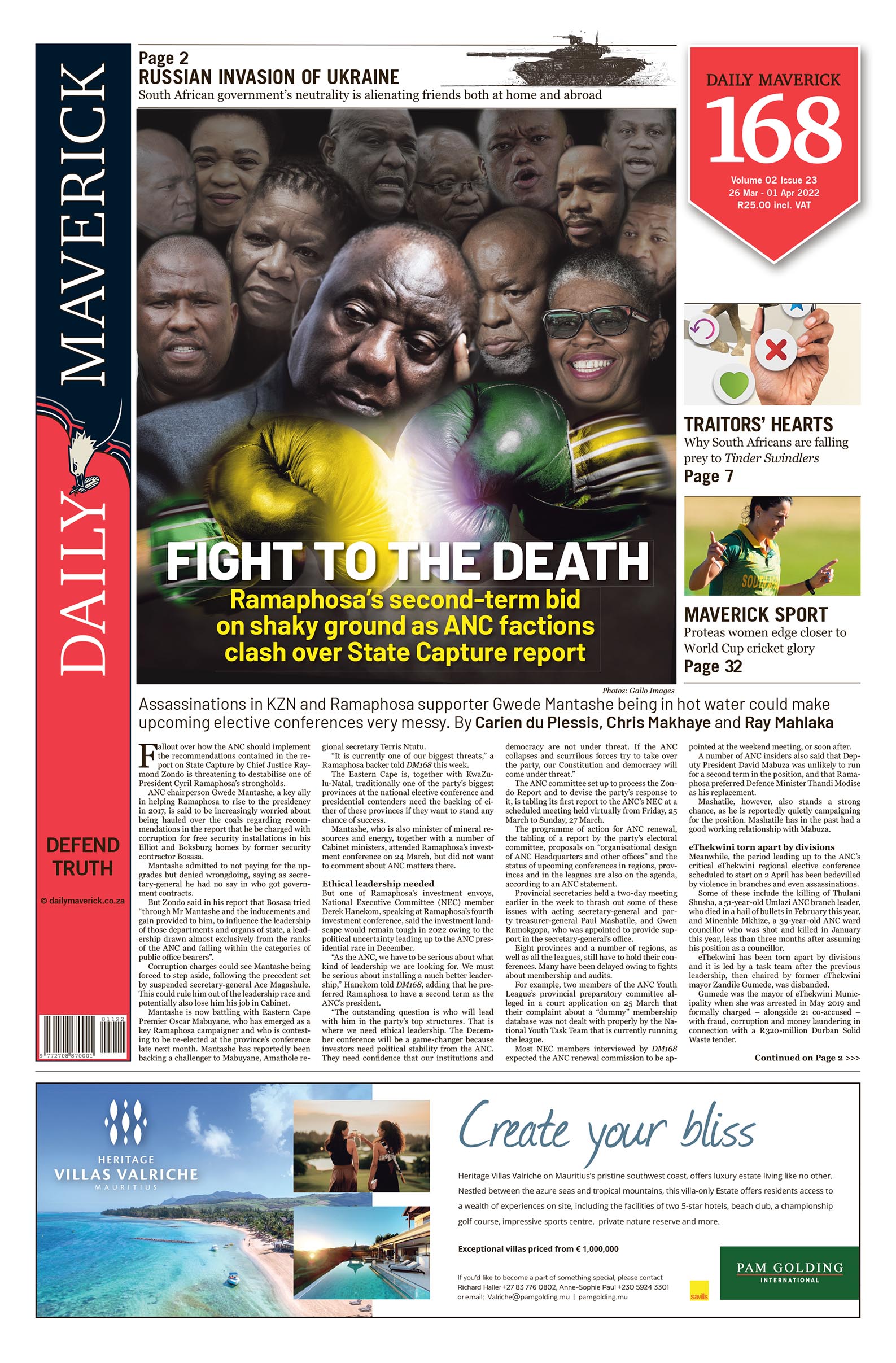It would be no disservice to the panel to say they are not the most central institution in our lives.
They do important work but fireworks don’t go off when they issue a ruling. It’s a group of legal technicians arguing fairly arcane issues of law in a subset of a subset of business activity; it’s a component of market regulation as applied to mergers and acquisitions.
And yet, even there, minor earthquakes resound, lives are changed, good and bad is done.
This week the TRP turned down the objections of a group of minority shareholders opposed to the effective takeover of sugar producer Tongaat Hulett by a Mauritius-based company called Magister, controlled by Zimbabwean tobacco and transport moguls the Rudland family.
For the TRP, the nature of the deal is irrelevant; the rules are the thing. But it’s worth noting that the deal is, in my humble opinion, dodgy. It’s structured as a cash injection — normally a good thing — but the cash injection is so huge relative to the value of the company that it’s actually a takeover at an absolutely enormous discount. The takeover is at such a discount that ordinary shareholders will be all but obliterated.
At the relevant shareholder meeting, shareholders voted in favour of the deal. Why would they do that if they are going to be decimated by it? Well, simply because a little bit of nothing might be better than nothing at all.
Tongaat is in all kinds of trouble and is overwhelmed by debt. Management and shareholders risk losing the company entirely, so are stuck between a rock and a hard place. Most have made the logical choice and plumped for the cash injection. We have seen this lots of times, and it’s not a pretty sight.
But there is still a deal to be done here and the question is: at how much of a discount is the asset being sold?
And there are the rules, the most important of which is Section 123(3) of the Companies Act which stipulates that if anyone buys more than 35% of a stock they are required to make a mandatory offer to the remaining shareholders. The rule is there as an expression of the equality of shareholders. If the owners of a company change, shareholders should have the opportunity to depart on the same terms as the new owners arrive.
Shareholders can waive the rule, if more than 50% of the independent shareholders vote in favour of doing so. In this case, they did so. A total of 135,112,506 shares were in issue at the time of the meeting. A total of 80,045,647 shares were voted (59% of Tongaat’s total issued ordinary shares); 56,463,289 shares, representing 77.30% of shareholders who attended the meeting, voted in favour of the waiver resolution. It’s worth noting that less than half the shares in issue voted in favour of the deal.
Done and dusted, you might think. And this was the opinion of the majority of the TRP. But reading the judgement, I was interested to see a dissenting voice. It was that of NA Matlala, who questioned if the “independent” aspect of the criteria was satisfied.
Matlala noted, for example, that all shareholders were allowed to vote. Those clearly tied to the takeover company announced before the meeting they would not vote. But with no bar on anyone voting, it was impossible to tell if the shares were voted or not.
Furthermore, he argued, huge numbers of shareholders hold shares through financial institutions and there was no indication those institutions had canvassed the actual owners of the shares on the question at hand.
“The majority decision has denied the applicants the benefits afforded them by Section 123 of the Act and such denial in my view is unconstitutional as it is tantamount to expropriation of property without compensation while the concert parties obtained such benefit,” he wrote.
Ultimately, like so much of life, this is a question of morality versus legality.
The majority of the board plumbed for legality. Matlala’s finding was clearly affected not only by the rules but why the rules exist — the morality, if you like, that is the rules’ reason for being.
I know lots of people in business like to think in terms of legality and not morality. But, trust me on this, ultimately immoral businesses fail. They don’t always fail quickly but, barring some notable exceptions, they almost always fail. Shareholders desert them, bankers worry about their image, employees worry about their future.
As we shall see. DM168
This story first appeared in our weekly Daily Maverick 168 newspaper which is available for R25 at Pick n Pay, Exclusive Books and airport bookstores. For your nearest stockist, please click here.

















 Become an Insider
Become an Insider
Comments - Please login in order to comment.